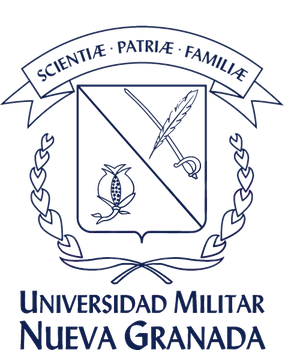Official curricular approaches: the loss of credibility
Abstract
The humanities as a mainstreaming element can generate in universities spaces for reflection and analysis, in order to address various priorities over time can become chronic and affect the social. Credibility seems to be a devalued concept, nor anyone believes anyone personally or institutionally, so it is necessary to find the origin of this rupture. There has been a talk of education quality, coverage, technologies, but the issue of credibility in educational institutions does not seem to be of greater importance. That is why those points demonstrate institutional intervention, as is the subject of this micro-year research, is to take a look at the official curriculum of the educational institution. By analyzing the PEI, some views of members of the institution as managers, teachers, students and finally considering some authors that give weight and depth to the reflection, so that it does not remain a mere casuistry. For this, it starts in the hypothesis that the teacher-researcher must worry about every day expand the theoretical basis that enrich his speech, as a way to streamline the processes of education that are responsible.
Downloads
References
Aldana, E. (1996). Colombia al filo de la oportunidad. Bogotá: Tercer Mundo.
Ávila Penagos, R. (2006). La investigación-acción pedagógica. Experiencias y lecciones. Bogotá: Anthropos.
Beane, J. (2005). La Integración del currículum. Madrid: Morata.
Caineiro, R. (s. f.). Sentidos, currículo y docentes. Recuperado el 25 de agosto de 2011, de http:// www.oei.es/docentes/articulos/sentidos_curriculo_ docentes_carneiro.pdf
Díaz, M. (2002). Hacia una política de flexibilidad curricular. Bogotá: Instituto Colombiano para el Fomento de la Educación Superior [Isfes].
Greinberg, S. y Levy, E. (2009). Pedagogía, currículo y subjetividad: entre pasado y futuro. Buenos Aires: Universidad Nacional de Quilmes.
Grundy, S. (1998). Producto y praxis del currículum. Madrid: Morata.
Kemmis, S. (1998). El currículo más allá de la teoría de la reproducción. Madrid: Morata.
Kemmis, S., Cole, P., y Suggett, D. (2007). Hacia una escuela socialmente crítica. Orientaciones para el currículo y la transición. Valencia: Nau Llibres.
Maldonado, M. (2010). Currículo con enfoque de competencias. Bogotá: Ecoe.
López, N. (2001). La deconstrucción curricular. Bogotá: Magisterio.
López, N. (2003). Retos para la construcción curricular. Bogotá: Magisterio.
Magendzo K. (1988). Currículum, educación para la democracia en la modernidad. Bogotá: Impreandes.
Mckernan, J. (2001). Investigación acción currículum. Madrid: Morata.
Posner, G. (2005). Análisis del currículo. Buenos Aires: McGraw-Hill.
Pozo, J. I., Scheuer, N., Pérez Echeverría, M. del P. y Mateos, M. (2006). Nuevas formas de pensar la enseñanza y el aprendizaje. Barcelona: Grao.
Quintar, E. (2005). Reforma curricular y postura epistémica, desde la perspectiva de la didáctica no pa-rametral. Entrevista de la Dirección de Docencia Universidad de Guanajuato, México. Recuperado el 21 de abril de 2015, de http://www.ipecal.edu.mx/Biblioteca/Documentos/Documento2.pdf
Quintar E. (2006). La enseñanza como puente a la vida. México, D. F.: Instituto de Pensamiento y Cultura en América Latina [Ipecal].
Quintar, E. (s. f). Pedagogía de la dignidad de estar siendo. Recuperado el 28 de abril de 2015, de http:// tumbi.crefal.edu.mx/rieda/images/rieda-2005-1/ aula_magna.pdf
Stenhouse, L. (2003). Investigación y desarrollo del currículum. Madrid: Morata.
Stenhouse, L. (2004). La investigación como base de la enseñanza. Madrid: Morata.
Torres, J. (2000). Globalización e interdisciplinariedad: el currículum integrado. Madrid: Morata.













